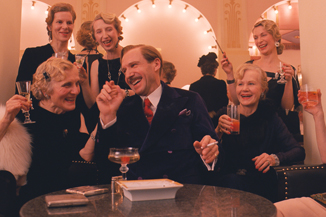|
|
If I Were an Academy Member: Edwin DaviesBy Edwin DaviesFebruary 20, 2015
2) Selma The way that Selma’s awards chances diminished in the lead up to the nominations – the result of a botched campaign by the studio, who pretty much only sent screeners out to Academy members and ignored other voting bodies, hurting their chances to build up steam as awards season progressed, as well as a well-orchestrated effort to smear the film for fairly minor deviations from the historical record – is probably one of the more disheartening thing about this year’s race. Here you have a film that is not merely a great work of art, something that feels incredibly alive in a way that few historical stories manage, but one that taps directly into questions of race and racism in America that have been at the forefront so much in 2014. The ultimate victory for Ava DuVernay and her cast and crew is that they made a fantastic film, and no one can take that away from them. But that it has not been recognized except in the most perfunctory manner, and that recognition did not lead to greater awareness for the film in general, is still shameful. 1) The Grand Budapest Hotel Even though I loved Wes Anderson’s latest – it was my favourite film of last year and I love it more every time I watch it – it’s still surprising to see The Grand Budapest Hotel receiving so much love from the Academy. Not only did it come out in March, far outside of the usual confines of awards season, but Wes Anderson’s work in general has tended to be ignored when it comes to the Oscars. Prior to this year he had been nominated for Original Screenplay twice (for The Royal Tenenbaums and Moonrise Kingdom) and Best Animated Feature once (for The Fantastic Mr. Fox) but it always seemed like his work was on a wavelength that the Academy didn’t care for. I’m not sure what changed between Moonrise Kingdom and The Grand Budapest Hotel, but they’ve gone all in for him this year and I’m delighted to see one of his richest, funniest and saddest films receive such recognition. The film almost certainly won’t win Best Picture (though I’d bet good money on Anderson taking home Best Original Screenplay since the Academy likes to use that category to recognize interesting work (see also: Spike Jonze winning for Her)) but, much like his fellow Texan and multiple nominee Richard Linklater, Anderson’s showing this year feels like a long overdue celebration of decades of great work. Sure, the Oscars might be late to the party, but at least they got there before everyone had gone home.
|

|
|
|

|
Thursday, October 31, 2024
© 2024 Box Office Prophets, a division of One Of Us, Inc.


